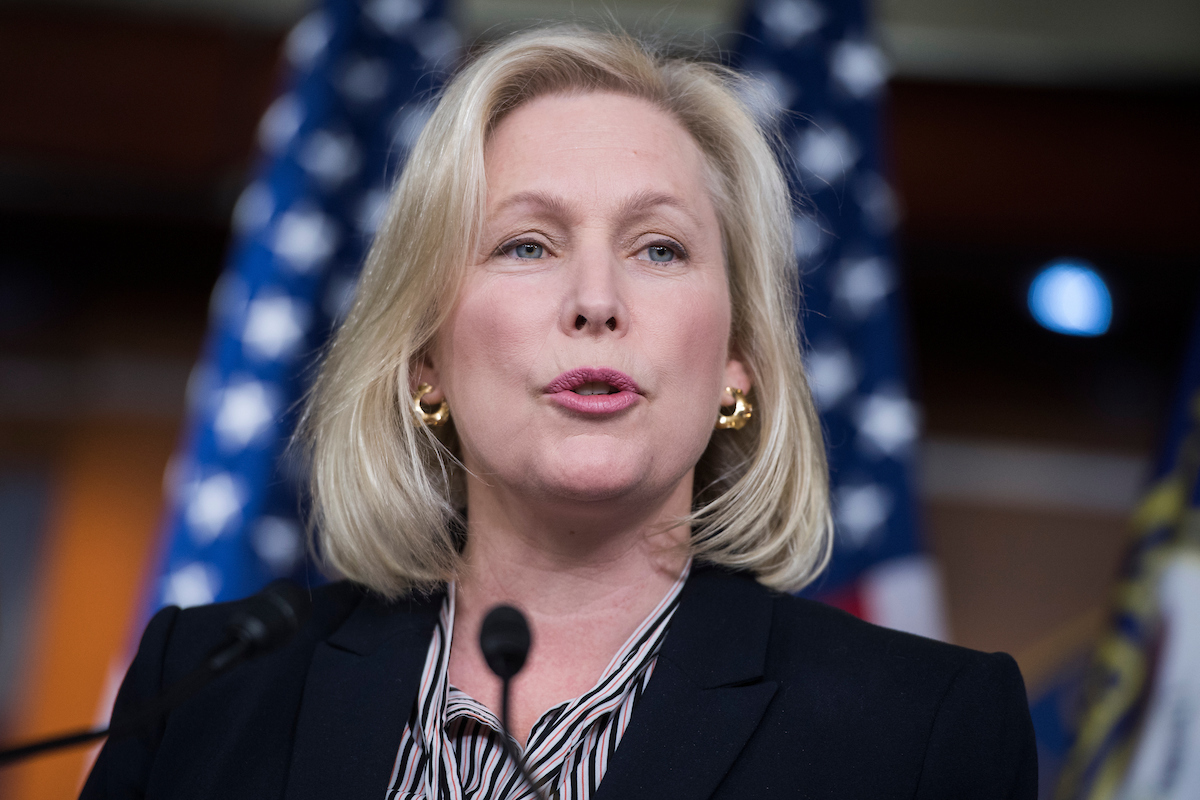Most 2020 Democratic candidates opposed spending bill
Booker, Harris, Gillibrand and Warren voted no, while Klobuchar voted yes

Senate Democrats eyeing the White House split their vote Thursday on the compromise spending package that would avert another government shutdown, with nearly all the candidates who have already announced bids voting against it.
The Senate overwhelmingly adopted the conference report, 83-16, but five Democrats, including four presidential contenders — Sens. Cory Booker of New Jersey, Kirsten Gillibrand of New York, Kamala Harris of California and Elizabeth Warren of Massachusetts — joined 11 Republicans in voting ‘no.’
Of the announced candidates, only Minnesota Sen. Amy Klobuchar supported the measure. Vermont independent Bernie Sanders (who caucuses with the Democrat) and Ohio’s Sherrod Brown, neither of whom have officially jumped in the race, also voted for the package as did Colorado’s Michael Bennet and Oregon’s Jeff Merkley, who are said to be weighing 2020 runs.
The more liberal Democrats in the field are positioning themselves in the Senate to win the nomination by setting up a contrast to President Donald Trump, whom the White House has said will sign the spending package Friday.
Several pro-immigration groups came out against the compromise measure, saying it made too many concessions to Trump.
While the bill wouldn’t give the president the $5.7 billion for the border wall that he wanted, it does include $1.375 billion for about 55 miles of barriers along the border with Mexico. The White House confirmed Thursday that Trump will declare a national emergency at the southern border to redirect military funds for his desired wall, which Democrats oppose and have threatened to challenge in court.
Candidates who opposed the bill spoke out against the emergency declaration, with many referring to the wall as Trump’s “vanity project.”
“The President is going to abuse his power with a non-credible national emergency to go around Congress and waste taxpayer dollars for an ineffective border wall,” Gillibrand said in a statement Thursday evening.
She specifically cited the spending measure’s increased funding for the Immigration and Custom Enforcement agency, saying “it comes with no accountability and will give the President the ability to continue his inhumane policies.”
Booker offered a similar reasoning for his ‘no’ vote: “This funding bill gives ICE and [Customs and Border Protection] hundreds of millions of additional dollars with little oversight or appropriate guardrails.”
Harris voted against the bill out of concern about the increase in funding for the Department of Homeland Security and potential increased capacity for detention facilities.
Sanders said he had reservations about the legislation but ultimately supported it because of the federal workers affected by the last shutdown.
“I cannot turn my back on the two million federal employees and private contract workers who would be forced, again, to work without pay,” the Vermont independent said in a statement.
Across the Capitol, the House later voted comfortably, 300-128, to adopt the spending package. Hawaii Rep. Tulsi Gabbard, who entered the Democratic presidential race last month, voted for the measure, as did California Rep. Eric Swalwell, a potential candidate.
Also watch: Senate leaders interrupt Grassley speech to announce Trump’s support for deal, national emergency plans





